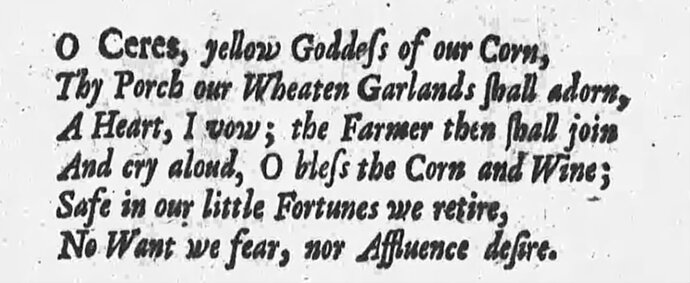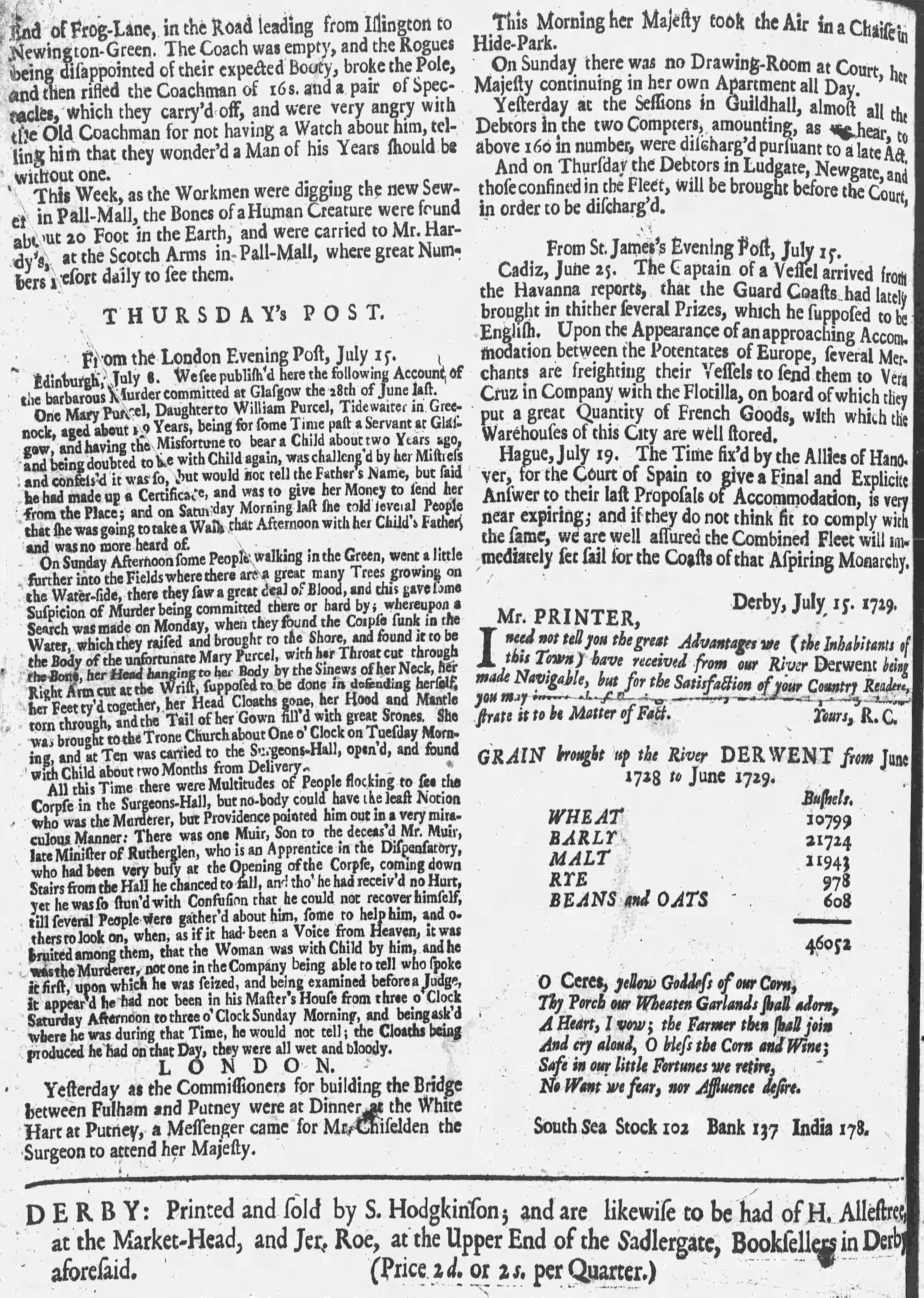I wanted to share an excerpt from an old newspaper I stumbled across. The Newspaper is called “The British Spy, or, Derby Post-man” from Sunday, 17 July 1729 on page 4 available from newspapers.com (with subscription, sorry)
I found this poem but I feel it could fit as a prayer to Ceres.
I will transcribe it as old english used a letter similar to the current lower case “f” for a lowercase “s” in the 18th century for anyone confused on the texts.
“O Ceres, yellow Goddess of our Corn,
Thy Porch our Wheaten Garlands shall adorn,
A Heart, I Vow; the Farmer then shall join
And cry aloud, O Bless the Corn and Wine;
Safe in our little Fortunes we retire,
No Want we fear nor Affluence Desire”
What do you think? Do you think its a prayer, poem, ritual, quote from another work?
I’m a researcher even in my leisure and am always learning, especially about history, mythology or ancestry so I spend some time looking over old newspapers for fun. The further back I go the more difficult it is to get a feel for the context it was meant in, but I will say this is one of the only excerpts I have personally found that referenced a goddess without it being clear that it was to do with some antiquities found, art, theatre, books or mythological stories. I added both a full page to show how it relates to the rest of the page and there is no more pages after that in case you are wondering that is the end of the newspaper.
The way I personally feel is that even in a heavily Christian time and place some slips of “superstition” or pagan values I think may have sprinkled in. We know this happens, but with more being digitized and seen by more eyes than before I wonder how many times this may have happened and people didn’t realize they still valued certain rituals or prayers at a sacred core level before Christianity started to block it from media. ![]()
This is extremely lighthearted and just for my own joy of History, Humans & Mythology and wanted to share for any one else who would feel chuffed seeing this from such an old time yet so much closer than the Ancient roots.


